SUMMARY
This is AI generated summarization, which may have errors. For context, always refer to the full article.
The Philippines said on Tuesday, June 15, that the decision of the International Criminal Court (ICC) prosecutor to request an investigation into President Rodrigo Duterte’s violent drug war was “deeply regrettable.”
Outgoing ICC prosecutor Fatou Bensouda, who retired on June 15, had applied for an authorization with the pre-trial chamber (PTC) to probe alleged crimes against humanity committed in the Duterte government’s anti-illegal drug campaign, as well as killings in Davao City from 2011 to 2016, when Duterte served as mayor.
The Philippines, through the Department of Foreign Affairs (DFA), maintained it had taken “concrete and progressive steps” to address concerns over the bloody drug war and that the country’s Department of Justice should be allowed to finish ongoing investigations on deaths seen in the campaign.
“The Philippine Government finds deeply regrettable the announcement of the outgoing Prosecutor of the International Criminal Court to seek judicial authorization to proceed with an investigation of the Situation in the Philippines,” the DFA said in a statement.
“The Philippine Government wishes to underscore that the Inter-Agency Review Panel headed by the Secretary of Justice was established to reinvestigate cases involving fatalities in the campaign against illegal drugs, and said panel is continuing its work, and should be allowed to finish such work,” it added.
Justice Secretary Menardo Guevarra had earlier announced the creation of inter-agency panel that would reinvestigate the 5,655 deaths in police drug war operations during the United Nations Human Rights Council 44th session in June 2020. The move has been viewed by observers as an attempt to avoid the ICC, which was deciding at the time if there was jurisdiction to probe Duterte’s drug war.
But the application to open the investigation at the ICC means Bensouda was able to establish jurisdiction. This means that the Philippine justice system, for her, was unable or unwilling to indicate willingness to prosecute these killings.
‘Court of last resort’
On Tuesday, the Philippines asserted the ICC was a ‘court of last resort’ and that Bensouda’s move to apply for a probe was a “blatant violation of the principle of complementarity, which is a bedrock principle of the Rome Statute.”
Under the principle of complementarity, the DFA argued that state parties to the Rome Statute and, by extension, the ICC envisioned a court with “complementary, not primary, jurisdiction for the prosecution of the persons most responsible for the most serious crimes of international concern.”
The Philippines also hit the “midnight announcement” of Bensouda, saying it “preempts” her successor from making a full evaluation of case that he will prosecute.
“By her act, the outgoing Prosecutor likewise undercuts the attractiveness of the Rome Statute to States that may be considering accession,” it said.
The Philippines had been party to the Rome Statute but Duterte has since withdrawn the country’s ratification of the treaty. Duterte took to claiming that the Rome Statute was never published in the Official Gazette, and thus never took effect in the country.
Duterte also said the Philippines had been “made to believe that the principle of complementarity shall be observed” among reasons for withdrawing from the Rome Statute.
While the ICC earlier said Duterte’s unilateral withdrawal will not affect its investigation, international lawyers nonetheless said withdrawal will make it difficult for the ICC to investigate the case.
The Philippines also sought to draw attention to the country’s track record of engaging with international bodies to promote and protect human rights. It cited recently concluded discussion on the the Joint Program on Human Rights done with the United Nations which outlines “objectives, strategies, indicators and targets” to protect and promote human rights, and comply with international human rights obligations over the next three years.
Malacañang, meanwhile, expressed confidence the ICC PTC would reject the the request for an investigation. Presidential Spokesperson Harry Roque likewise declared Duterte would “never cooperate” with any ICC probe. – with reports from Lian Buan/Rappler.com
Add a comment
How does this make you feel?
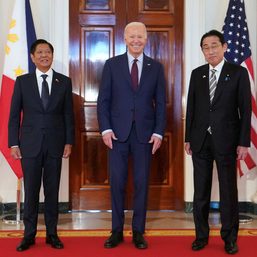
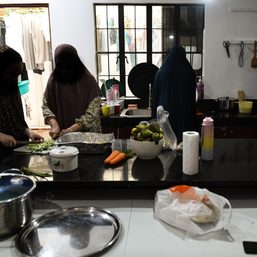
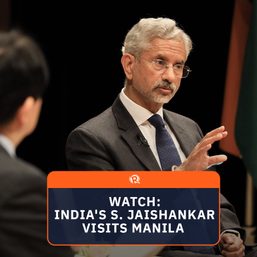
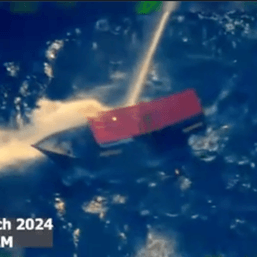
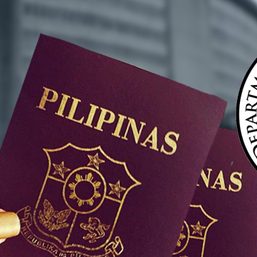

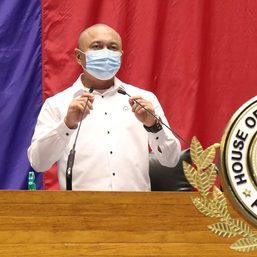
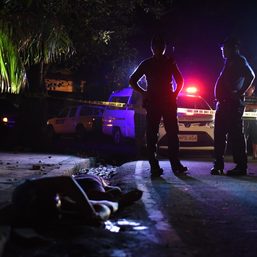
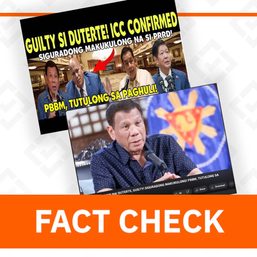
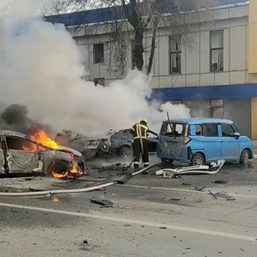


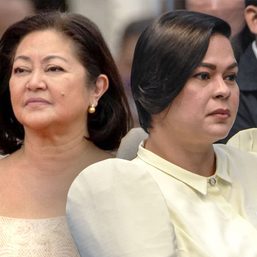
![[OPINION] ‘Some people need killing’](https://www.rappler.com/tachyon/2024/04/tl-some-people-need-killing-04172024.jpg?resize=257%2C257&crop_strategy=attention)
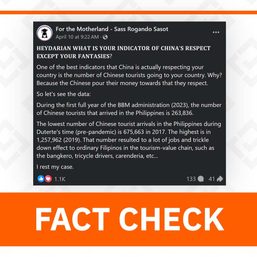
There are no comments yet. Add your comment to start the conversation.